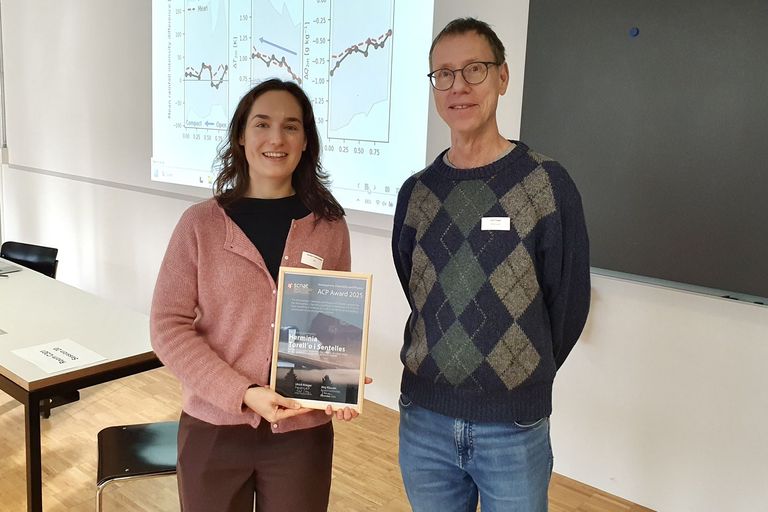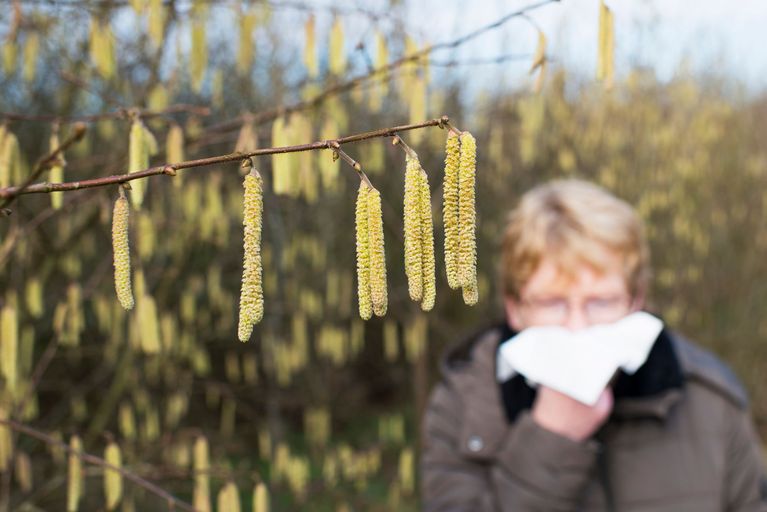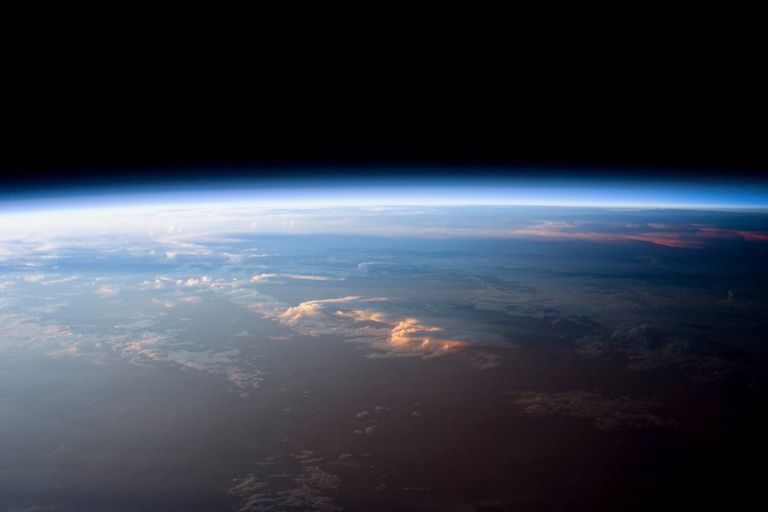
Atmospheric Chemistry and Physics ACP Award 2025
At the 23rd Swiss Geoscience Meeting, held in Bern in December 2025, the Atmospheric Chemistry and Physics Award was presented to Hermenia Torell'o i Sentelles for her doctoral thesis “Exploring the effects of urban areas on the space time properties of heavy rainfall.” Her research investigates how cities of varying sizes and climatic settings modify precipitation patterns. Using remote-sensing data, particularly weather radar observa-tions, she analysed storm behaviour in space and time with a storm tracking algorithm. Building on these findings, she applied convection resolving numerical modelling to uncover the dynamic and thermodynamic mechanisms that drive the urban influence on extreme precipitation.
Image: ACP
29th ETH Nanoparticles Conference (NPC-2026)
The Nanoparticles Conference functions as an interdisciplinary forum focusing on all aspects of nanoparticles — from different types of sources to transformative changes in ambient air, followed by their global distribution. The event will explore technical mitigation, regulatory standards, and the effects of nanoparticles on health, the environment, and climate.

Atmospheric Chemistry and Physics ACP Award 2024
At the Swiss Geoscience meeting in Basel in November 2024, the ACP Award for Atmospheric Research was presented to Dominique Rust for her PhD thesis “Verification of halogenated greenhouse gas emissions by regional atmospheric observations in Europe”. Her work covers a wide range of methods, from precision measurements of gases to statistical data analysis. The award committee was particularly impressed by one part of her thesis work: In a tracer-release experiment she could quantify emissions from a fluorocarbon industry cluster and could show that effective abatement measures do reduce HFC emissions.
Image: ACP
Hay fever on the increase due to climate change
The hay fever situation in Switzerland is deteriorating because of climate change: the hay fever season is becoming longer, pollen concentrations are increasing, and highly allergenic invasive plants are becoming widespread. Researchers at the Swiss Commission for Atmospheric Chemistry and Physics (ACP) of the Swiss Academy of Sciences (SCNAT) and the Swiss Federal Office for Meteorology and Climatology (MeteoSwiss) have issued a new fact sheet that summarises the latest findings about the hay fever and pollen situation, and how it is being impacted by climate change.
Image: stock.adobe.com/schulziePollen allergy and the impact of a changing climate
While hay fever was almost unheard of in Switzerland 100 years ago, at present, around 20 percent of the Swiss population suffers from pollen allergy. Importantly, climate change is causing an earlier onset and increased intensity of the pollen season for many allergenic plants. Climate change also fosters the spread of highly allergenic invasive plants like ragweed. Furthermore, the combined exposure to air pollution and pollen may worsen allergic reactions through increased sensitivity and increased pollen allergenicity. Scientists of the Swiss Commission for Atmospheric Chemistry and Physics provide an overview of pollen, hay fever, and how climate change is affecting both.
Image: CC BY-NC-ND
Atmospheric Chemistry and Physics ACP Award 2023
At the occasion of the Swiss Geoscience meeting in Mendrisio in November 2023, the ACP Award for Atmospheric Research was presented to Marina Friedel for her PhD thesis "The role of Arctic ozone in forcing Northern Hemispheric climate". Her work shows that the springtime Arctic ozone depletion causes surface anomalies across the Northern Hemisphere on both seasonal and multi-decadal timescales. Her results were recognised in the summary report of the 2022 WMO/UNEP Ozone Assessment.
Image: NASA